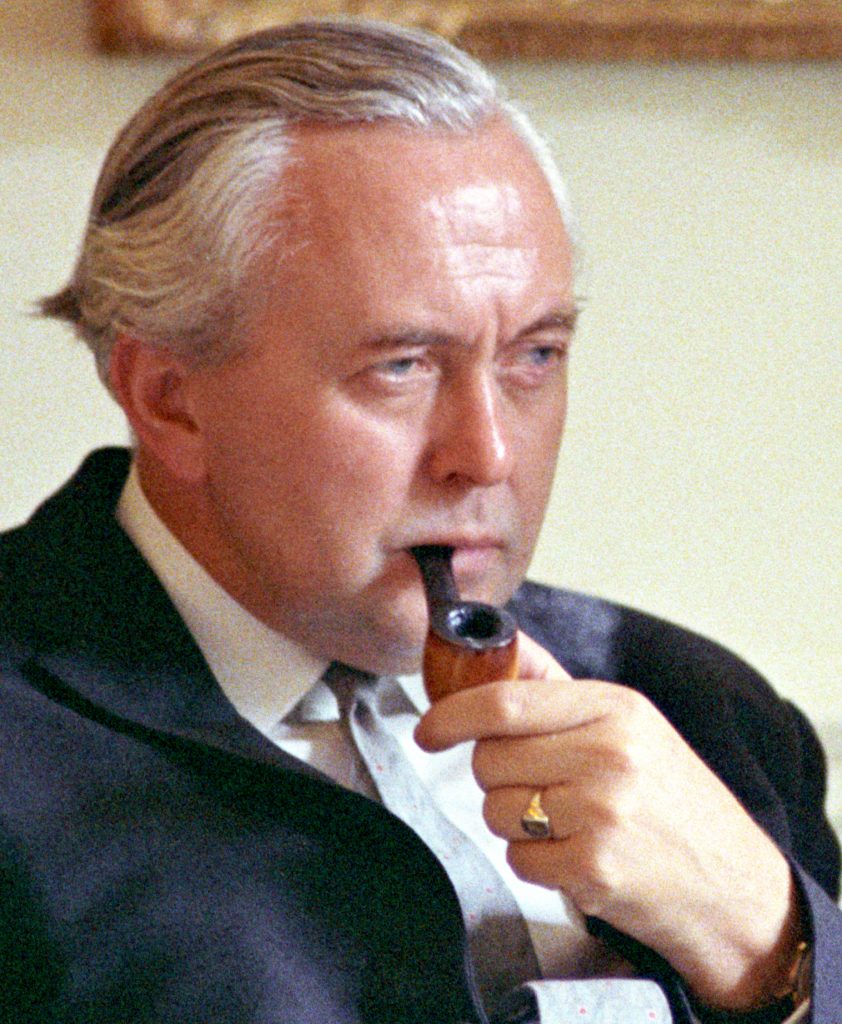
However memorable they may have been in popular cultural terms, the 1970s were also a time of almost unparalleled economic and political upheaval. Nationally and internationally, crises abounded, and it seemed as if as each one of them abated another lay in waiting to take its place. The Cold War, the Cod War, strikes, power cuts, unemployment, rampant inflation, financial bailouts, political scandals, four-day and three-day working weeks, football violence, bombs, kidnappings and hijackings conspired to present an ominous backdrop to a decade of music, film, fashion and fun.
On the domestic front the decade had begun with the surprise defeat of Harold Wilson, the Labour leader who had been Britain’s Prime Minister for six years, winning elections in 1964 and 1966. Opinion polls had indicated a comfortable Labour lead, but on 18th June 1970 the voting public heaped scorn upon them by electing Conservative leader Edward Heath to form a government. Heath remained in office until February 1974, when he fought an election on the question of “Who runs this country?” (by which he meant the government or the trade unions) and was told in not so many words “Not you!”
It would be unthinkable today, but having remained leader of his party following an election defeat Wilson was returned to No.10 in 1974 for his second period of office, although with a victory over the Tories of just four seats, and no overall majority. Unable to enact legislation with the numbers being as they were, Wilson decided to call a second election later in the same year. It was a gamble which paid off when he was re-elected to the top job with a parliamentary majority, albeit one of just three. And so began in earnest the second meaningful phase of his prime ministerial career.
Economic and industrial affairs
During his earlier tenure Wilson had presided over some defining shifts in social policy, including the abolition of the death penalty and the decriminalisation of male homosexuality. His second period, however, once a referendum on Britain’s continued membership of the European Economic Community (EEC) was done with, was more preoccupied with economic and industrial affairs. In 1976 inflation peaked at an eye-watering 26%, and the government negotiated a “social contract” with the unions in which any pay increases would be kept within agreed limits as a means of preventing further inflationary pressure. The National Enterprise Board was established in 1975 to channel public investment into industry, in return for some equity in private companies. In theory the idea had been to increase public ownership, but critics would argue that it also had the effect of propping up otherwise ailing enterprises.
And then, on 16th March 1976, suddenly it was all over. Entirely out of the blue Harold Wilson, aged 60, announced his resignation as Leader of the Labour Party and as Prime Minister, to take effect from 5th April. Within three weeks, the United Kingdom would have a new PM.
The unexpected nature of Wilson’s announcement has given birth to some elaborate and occasionally bizarre conspiracy theories, and these were only fuelled by some of the eccentric nominations contained within his retirement honours’ list. One beneficiary was Joseph Kagan, the proprietor of Gannex raincoats of which Wilson himself was so fond. Already knighted by Wilson, Kagan was awarded a life peerage in the resignation list. A few years later he was behind bars, having been sentenced to ten months in prison for theft (in reality for tax evasion, although the alternative charge enabled him to be extradited from France),
Another was Eric Miller, a property dealer who received a knighthood despite rumours of financial impropriety which were later to develop into a formal investigation, during which he committed suicide. It was believed by many that the original list of potential nominees had been drawn up by Wilson’s political secretary Marcia Williams (on lavender notepaper, hence the draft coming to be referred to as the “Lavender List”). Williams herself had been bestowed the title Baroness Falkender by Wilson in 1974.
Not an everyday event
It is certainly not an everyday event that a relatively young man at the peak of his powers should suddenly, and without undue pressure, voluntarily relinquish the most important political job in the country. However there is a strong case to be made that, whilst it hadn’t been a good look, there had been nothing financially corrupt about the list of honours and awards handed out by Wilson. This was the view taken by his biographers Ben Pimlott and Philip Ziegler.
According to Wilson, he had decided many years before that he would not complete a second term in office and had discussed this with several of his colleagues. He had even advised the Queen back in December 1975 of his intention to resign, and gave a specific date as to when this conversation had taken place. Most observers concede that he was unlikely to have been so specific had such a conversation not happened.
There were possibly also some medical factors which had contributed. His doctor had identified complications which would later be diagnosed as colon cancer, and it is possible that issues involved in his later struggle with Alzheimer’s disease had already begun to report. What is known for sure is that he himself had begun to lose his enthusiasm for political activity, a thing which his wife Mary had never shared with him in the first place.
Following Wilson’s resignation the traditional contest ensued, from which the former Foreign Secretary James Callaghan would emerge victorious. Callaghan was appointed Prime Minister of the United Kingdom on 5th April 1976, an office he was to hold for three years. Harold Wilson, later to become Lord Wilson of Rievaulx, passed away on 24th May 1995 at the age of 79. He was buried at St. Mary’s Old Church on his beloved Isles of Scilly.

If you enjoyed reading this article, make sure you stay updated with all Phil’s latest blog posts by signing up to receive his free Newsletter. You can unsubscribe at any time and your details will never be shared with any third party. Click here to sign up today.